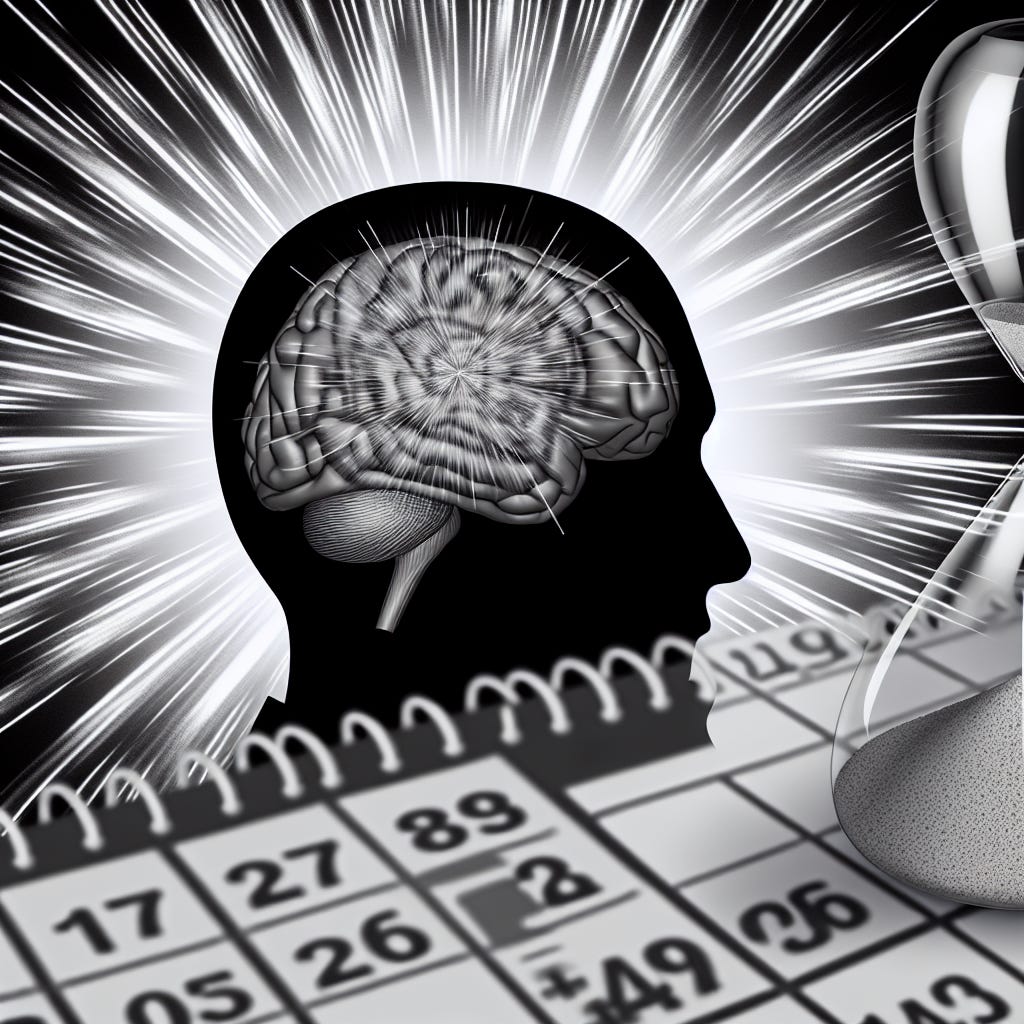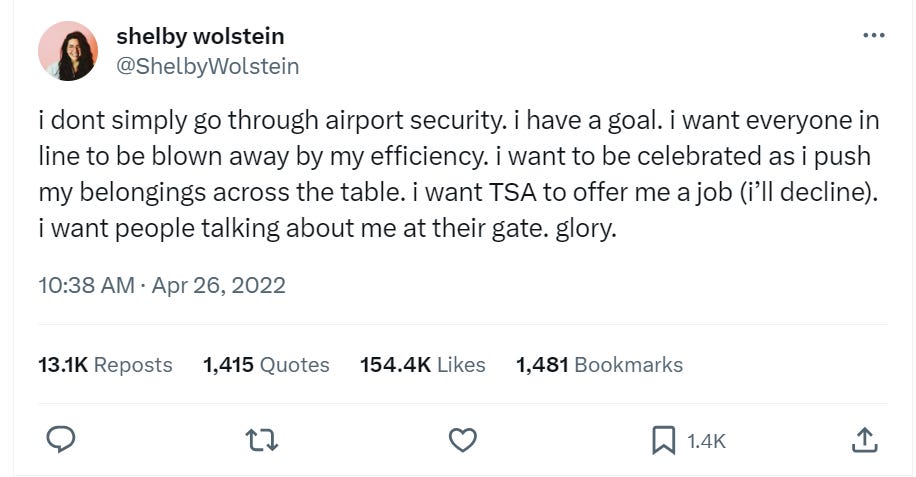We All Need to Just Chill
Stress is on the rise, but there's ways we can combat it.
We use the term “burnout” a lot, especially given how connected to our work we’ve truly become. Unlike our parents (and their parents before them) those 40 and under have spent their entire professional careers with a device in their pocket that keeps them tethered to work at all hours, no matter where on Earth they are. We treat it as normal, but it is wildly unhealthy.
It has become laughable - especially with the blending of the home and the office post-Covid - that many white-collar professionals are said to work a “9-5.” The last time my job resembled anything like that it was aligned to shift work doled out by a scheduling supervisor. With all due respect to the queen Dolly Parton, 9-5 is not the way a lot of us are making our living anymore.
The checking of email begins almost instantly - when one gets up and starts getting the kids ready for school, on the train into the office (if you have enough room and get a good seat on light rail, there’s always the temptation to pop open the laptop), waiting in line for your morning coffee, hell on the elevator up to your office floor - we’re checking email and instant messages. It’s what one therapy patient has described as being “compulsively active” - we cannot simply exist without doing something.
It’s the Phones, Stupid
And a huge piece of this is the supercomputer in our pocket, primed to buzz and beep with every little thing regardless of its import to our lives. We are all very online, even if we don’t want to be. Facebook groups keep us up to date on what’s going on in our towns and neighborhoods, Instagram stories show how awesome our lives all are, X is - well, I don’t really know but from what I can tell it’s mostly just anti-Semites arguing how awful the left is, goaded on by its owner. And these platforms are what we turn to to take a break from the constant barrage of email and IMs.
It’s become a part of our autonomic nervous system at this point. Last week work asked us all to swap out corporate-owned phones. As you can imagine, doing this for hundreds of workers in a single week is no small feat and there were hiccups with my transfer. I had to leave my phone with IT for a couple of hours.
It was stress-inducing not having it next to me (despite working on an internet-connected laptop the whole time.) I found myself looking for the phone to tap quickly to look at any notifications that came in throughout the day, then catching myself as I remembered it was being worked on. It was sad (and eye-opening.)
This invasion of phones into our daily lives is making its way into our tics and habits and it is harmful to a degree we’re still not sure of yet, but we do know it’s harmful.
Studies have shown that the mere presence of a mobile phone hurts cognitive function - the phone doesn’t even have to be on for negative cognitive effects to result. It leads to mental laziness because our brains no longer do basic things like remembering a string of 7-10 numbers or how to drive 5 miles - our phones do that for us. They affect our sleep, our social skills, and our brain chemistry - all for the worse.
Chillax
One growing problem is that all of the above is affecting our ability to actually relax when we want to. We are exercising our sympathetic nervous system - what’s essentially responsible for “fight or flight” - so much that we are constantly on guard no matter the situation. In modern society the “fight or flight” system has a tendency to get in the way of our everyday lives, given that we’re not roaming the plains trying to fight our way up the food chain while keeping an eye out for other apex predators trying to kill us.
When I first joined Digitas, my sympathetic nervous system probably thought that I was in constant physical danger from a mountain lion or alligator the way it pumped ungodly amounts of adrenaline through my system. In reality I was in a cubicle just trying to reconcile multiple data streams in an Excel to transfer to a Powerpoint in a format to avoid getting reamed out by my clients (and then consequently my VPs.)
As much as I poke fun at it today, it took me years to get over that “always primed for danger” feeling. This is all-too-common and I’m lucky that I’m not that extreme of a case - in advertising everyone knows someone who’s had a mental break or turned to the bottle because of the stress to perform and the “always on” nature of client services. [Ed.’s Note: If you or someone you love is in need of help with drinking or mental health issues, there are resources. If you’re a Groupe employee, the EAP is free and confidential and available 24/7]
This is not something we can simply turn off when we go on a two-week vacation. That idea of “compulsive activity” bleeds into everything we do, because it’s how a lot of us were brought up and educated. We pack every little thing into vacation that we can, because we need to be the best at vacation. When we take a day off to relax, we pack as much leisure activity into it in order to maximize it. We have to win at relaxing.
Break the Cycle
There are ways you can make sure to relax on vacation, but these oft-skipped or all-too-short (mostly for Americans) stints aren’t the remedy that’s going solve the disease - they’ll just potentially temporarily lessen the symptoms. It takes eight days to actually relax on a vacation because of all of the stress we build up at our jobs - so unless you’re a European in August that week and a half in Aruba will only go so far.
We need to work more consistent, habitual relaxation routines into our daily lives while ensuring we’re not trying to master relaxation - a pitfall that simply makes relaxation another task to do during the day. It’s a thin line and one that will require consistent mindfulness to not fall into the to-do list trap. There’s a reason things like yoga and meditation are called practices - they’re not competitions.
Some helpful ways to get started:
Work meditation into your routine. While everyone is different, 15-20 minutes a day is solid enough to begin to see results. And be patient - it’s not an overnight thing but once you start noticing the changes, it builds and builds as you continue the practice.
Skip the booze. While it may feel relaxing or numbing in the moment, you’re simply robbing Peter to pay Paul. Alcohol actually increases anxiety and depression, so that temporary chill feeling will cost dearly later. Probably why it’s the most addictive substance after blow and heroin (and ahead of nicotine and meth.)
Put the phone down. Or at least have boundaries around it. I’ve disabled all Outlook notifications on my phone so I check email when I want, versus being prompted to by a notification. Teams is a bit harder, but I only allow the app to tell me it has pending notifications when I see the icon (i.e. no buzzing or push notifications on my lock screen.) I’ve yet to miss an emergency because if it’s that urgent everyone has my cell to text or call.
Gain some perspective. There are plenty of ways to do this - travel to a place a bit outside your comfort zone on your PTO. Volunteer locally somewhere that you find fulfilling (with your time, not just writing a check - though I’m sure they’d appreciate that, too.) Carve some time out to do something you normally wouldn’t because you’re too busy at work - I’m sure your team can handle the QBR prep for a day without you. You’ll realize there’s so much more out there beyond the (since-disproven) 9-5.
Grab Bag Sections
WTF Chiefs: While the ads weren’t much to write home about (huge exception), the game itself was quite good. I had to put my daughter down and do the dishes, so I sat on the couch just in time for Usher and I’m told I didn’t miss much in the first half, which probably colors my take on the Big Game.
As entertaining as it can be to make fun of her, I don’t care that Taylor Swift was there (she got less than a minute of screen time, so if you’re that triggered by her you need some help). I honestly don’t really care about Brittany Mahomes (though I hear people hate her?) My concern is the Andy Reid/Patrick Mahomes relationship overshadowing the greatest football pair to ever do it - Bill Belichick and Tom Brady.
They won’t catch up to Brady and Belichick’s 30 playoff wins together, but if the Chiefs three-peat next year it will be all anyone talks about for the next decade and I will not stand for it. The Chiefs are a dynasty - that much is undeniable. But they are not - and will never be - as good as the Patriots with Tom Brady and Bill Belichick.
Album of the Week: If you follow me on Instagram, you know I promised Rumours as the album of the week. I lied.
We’re doing song of the week instead. “Silver Springs” has been living in my head rent-free for the past 10 days. It has spurred me to take yet another deep dive into Fleetwood Mac via Wikipedia holes and YouTube documentaries.
While this newsletter maintains that function, order, and transparency are the keys to success in the corporate world, Fleetwood Mac throws that theory into complete disarray when we think about Rumours and the best song of the album that didn’t actually make it onto the album. When you take into account the utter chaos that was raging between members of the band while that album was made, it is a wonder that the album was even released, never mind that no one was killed in the making of it.
This performance was in 1997 - more than 20 years after Stevie Nicks wrote the song and lobbied for it to be on the album, eventually losing. She wrote it about long-time partner and lead guitarist Lindsey Buckingham while they were driving through DC and saw a sign for Silver Springs, MD thinking it must be “a pretty fabulous place” (it’s not.)
This live version actually resurrected the song and was released as a single following the performance. It appeared as a B-side to “Go Your Own Way” in 1976 (ironically, Buckingham’s breakup song about Nicks), but never caught on.
The live performance is nothing short of electric. Nicks starts out sad and melancholy, mourning a relationship that was clearly at its end. Halfway through she switches to anger - she’s pissed, she’s vengeful, she’s out for blood. She’s sneaking looks at Buckingham at this point on stage - he’s avoiding them as he sings backup vocals to a song about how Nicks will haunt him for the rest of his life.
Then they lock eyes at 4:14. They don’t look away from each other until nearly a minute later, but it feels like an hour. Buckingham is leaning down, almost in deference to Nicks, who is shaking as she belts out her intentions on making sure he never forgets how he made her feel. They’re back in that car in DC hashing it out, except this time it’s in front of an audience of people - but they’re not really there. It’s just Nicks and Buckingham and we were simply lucky enough to witness it.
The range of emotions Nicks is able to convey in a mere five minutes takes artists an entire album’s worth of material to work through (if at all.) That’s why we’re honoring her with the first song of the week on TDNBW. I’m sure she’s humbled.
Quote of the Week: “Your mind will answer most questions if you learn to relax and wait for the answer.” - William S. Burroughs
See you next week!






